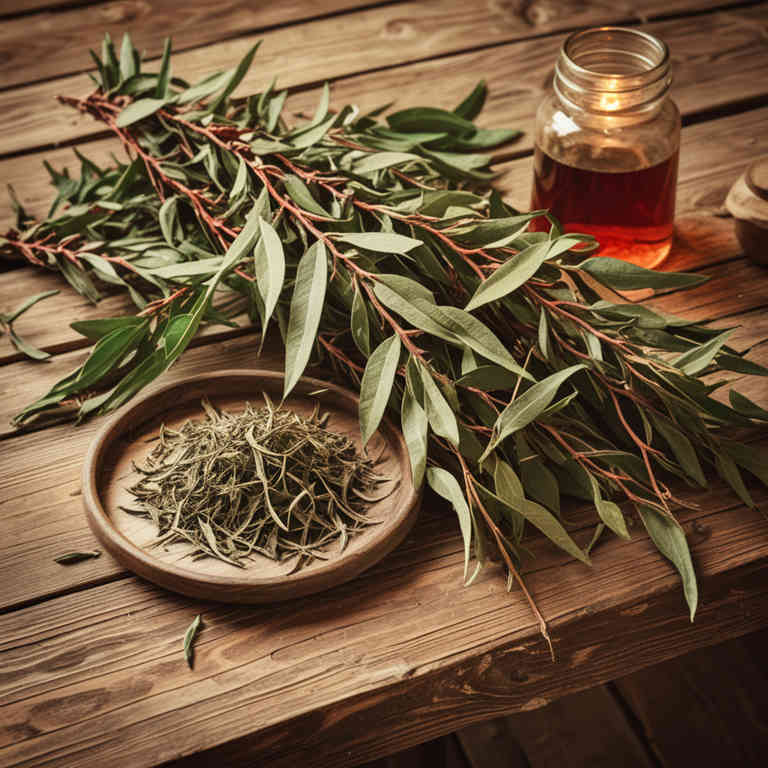Ruscus aculeatus decoction for medicinal use

Ruscus aculeatus decoction is a preparation made by boiling the dried leaves and stems of the plant Ruscus aculeatus, commonly known as butcher's broom.
This herbal remedy has been traditionally used in herbalism to support cardiovascular health and improve circulation. It is often employed to alleviate symptoms of varicose veins, hemorrhoids, and other circulatory disorders. The active compounds in the decoction are believed to strengthen blood vessel walls and promote better blood flow.
In modern herbal practice, it is sometimes used as a supportive treatment for conditions related to poor circulation.
Uses
Ruscus aculeatus decoction has been used to treat cardiovascular conditions, particularly those involving venous insufficiency and hemorrhoids, for centuries.
Historically, it was valued in ancient Greek and Roman medicine for its purported ability to strengthen blood vessels and promote circulation. In traditional herbal practices, it was also used to alleviate symptoms of varicose veins and to support heart health. Modern research has supported some of these traditional uses, with studies indicating its potential benefits in improving vascular function.
Today, it is commonly used in herbal medicine as a natural remedy for circulatory disorders and is often found in formulations for venous support.
Benefits
Ruscus aculeatus decoction has health benefits such as improving circulation, reducing inflammation, and supporting cardiovascular health.
It is traditionally used to alleviate symptoms of heart conditions and may help with hypertension. The decoction is also believed to have a calming effect on the nervous system, promoting relaxation and reducing stress. Its active compounds, including saponins and flavonoids, contribute to its therapeutic properties.
This herbal preparation has been used for centuries in traditional medicine to enhance overall well-being.
Constituents
Ruscus aculeatus decoction active constituents include saponins, flavonoids, and mucilage, which contribute to its therapeutic properties.
These compounds are known to support cardiovascular health by improving blood circulation and reducing vascular spasms. The decoction is traditionally used to alleviate symptoms of varicose veins and hemorrhoids due to its venotonic effects. It may also help in reducing inflammation and promoting tissue repair.
Overall, the herbal preparation is valued for its potential to enhance circulatory function and support overall vascular health.
Preparation
To make Ruscus aculeatus decoction, first gather 10-15 grams of dried Ruscus aculeatus leaves, ensuring they are free from pesticides and contaminants.
Next, place the leaves in a pot and add about 500 milliliters of water, bringing it to a gentle simmer over medium heat. Allow the mixture to simmer for 15-20 minutes, stirring occasionally to prevent burning. Then, strain the liquid through a fine mesh strainer or cheesecloth to remove the plant material.
Finally, let the decoction cool and store it in a clean, airtight container in the refrigerator for up to one week.
Side Effects
Ruscus aculeatus decoction may lead to gastrointestinal discomfort, including nausea, vomiting, and diarrhea, especially when taken in high doses or on an empty stomach.
It can also cause allergic reactions in individuals sensitive to the plant, manifesting as skin rashes, itching, or respiratory symptoms. Prolonged use may result in liver toxicity, as some studies suggest potential hepatotoxic effects. The decoction may interact with certain medications, particularly those affecting the cardiovascular or central nervous systems.
It is advisable to consult a healthcare professional before using this preparation, especially for individuals with pre-existing medical conditions.